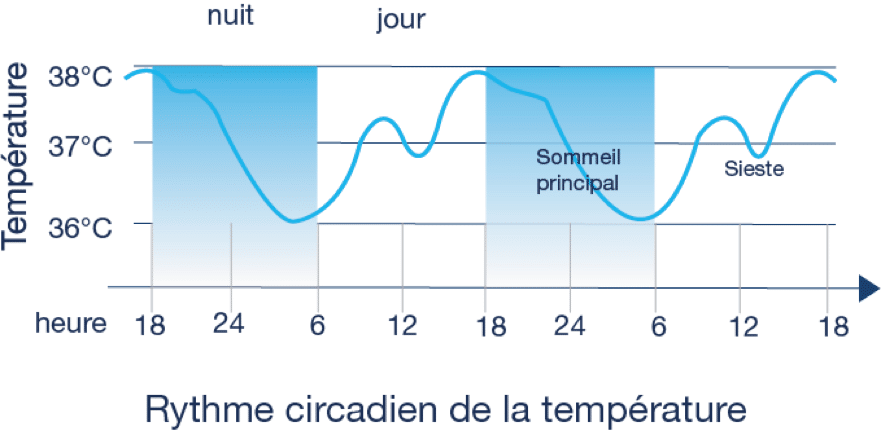What is the relationship between sport and sleep?
Sleep hygieneIt is common for people working during the week to relegate sporting activities to the evening. But doing so too late can have harmful effects on sleep. So how can you manage your schedule so that sport becomes a factor in improving your sleep?
Doing sport for a better sleep: a question of temperature.
Our sleep is conditioned in part by a cyclical control of brain temperature. When the brain cools down in the evening, it causes a feeling of tiredness and thus influences sleep. Sport, by warming the body, influences the biological clock responsible for regulating these temperatures.
Explanation:
When practising a physical activity, the athlete will trigger a peak in body temperature and feel fully awake. Their body heat then gradually decreases, putting them in the right frame of mind to fall asleep.
Depending on whether the activity takes place before or after the brain’s peak temperature (around 6pm), sport will modify the circadian cycle that manages the sleep-wake alternation by delaying or bringing forward the cooling phase. For example, a sporting activity practised in the morning is likely to bring forward the moment when body temperature is at its lowest, tiring the athlete earlier than usual.
Importance of slow-wave sleep (SWS)
Sport extends the length of slow wave sleep (SWS), during which there is a high level of activity of cell growth hormones. The reduction in body temperature of around 1°C, which is necessary for the process of falling asleep and is more easily achieved after physical effort, means that you can enter this phase of sleep more quickly, which is ideal for athletes or exercisers because it offers better muscle relaxation during the night and a more restful feeling in the morning.
In conclusion, as well as being a healthy activity, practising sport increases the depth and quality of sleep.

 Share on facebook
Share on facebook
 Share on twitter
Share on twitter
 Share on linkedin
Share on linkedin
 Share by email
Share by email